
The Untamed Beauty of Kgalagadi Transfrontier Park
Kgalagadi Transfrontier Park is a vast wilderness that straddles the border between South Africa and Botswana. This park is a haven for wildlife enthusiasts and offers some of the most spectacular scenery in the region. The endless horizons, red dunes, and sparse vegetation create a unique landscape that is both rugged and beautiful. The park is home to a variety of animals, including lions, cheetahs, and gemsbok. Bird watchers will also be delighted with the array of bird species found here, including birds of prey like the majestic martial eagle. One of the most striking features of Kgalagadi Transfrontier Park is its remoteness. Far from the hustle and bustle of city life, this park offers a truly immersive experience in nature. Visitors can enjoy game drives, guided walks, and even overnight wilderness trails. The park's campsites and lodges are well-equipped, providing a comfortable base from which to explore this pristine wilderness. The park is also an excellent destination for those interested in photography. The stark contrasts of the landscape, combined with the rich colors of the sand and sky, make for stunning photographs. Whether you are capturing the dramatic silhouettes of animals against the sunrise or the intricate details of the flora and fauna, Kgalagadi Transfrontier Park offers endless opportunities for photographers of all levels.
Local tips in Kgalagadi Transfrontier Park
- Visit during the dry season (May to October) for the best wildlife viewing opportunities.
- Book your accommodation well in advance, as the park is popular and availability can be limited.
- Bring plenty of water and sun protection, as temperatures can get extremely high.
- Consider hiring a 4x4 vehicle for easier navigation through the park's rugged terrain.
- Don't forget your camera and binoculars for optimal wildlife and bird watching.
The Untamed Beauty of Kgalagadi Transfrontier Park
Kgalagadi Transfrontier Park is a vast wilderness that straddles the border between South Africa and Botswana. This park is a haven for wildlife enthusiasts and offers some of the most spectacular scenery in the region. The endless horizons, red dunes, and sparse vegetation create a unique landscape that is both rugged and beautiful. The park is home to a variety of animals, including lions, cheetahs, and gemsbok. Bird watchers will also be delighted with the array of bird species found here, including birds of prey like the majestic martial eagle. One of the most striking features of Kgalagadi Transfrontier Park is its remoteness. Far from the hustle and bustle of city life, this park offers a truly immersive experience in nature. Visitors can enjoy game drives, guided walks, and even overnight wilderness trails. The park's campsites and lodges are well-equipped, providing a comfortable base from which to explore this pristine wilderness. The park is also an excellent destination for those interested in photography. The stark contrasts of the landscape, combined with the rich colors of the sand and sky, make for stunning photographs. Whether you are capturing the dramatic silhouettes of animals against the sunrise or the intricate details of the flora and fauna, Kgalagadi Transfrontier Park offers endless opportunities for photographers of all levels.
When is the best time to go to Kgalagadi Transfrontier Park?
Iconic landmarks you can’t miss
Kalahari Desert
Discover the breathtaking beauty of the Kalahari Desert, a unique ecosystem teeming with wildlife and cultural heritage, perfect for adventurers and nature lovers.
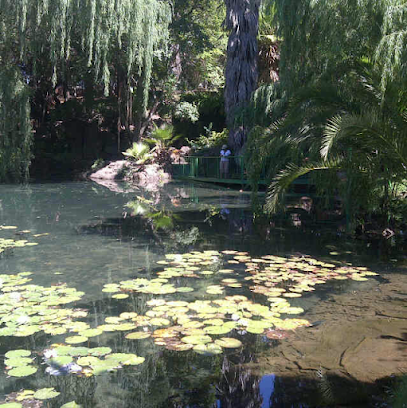
Twee Rivieren
Discover the beauty of the Kalahari Desert at Twee Rivieren, the gateway to the Kgalagadi Transfrontier Park's stunning landscapes and wildlife.
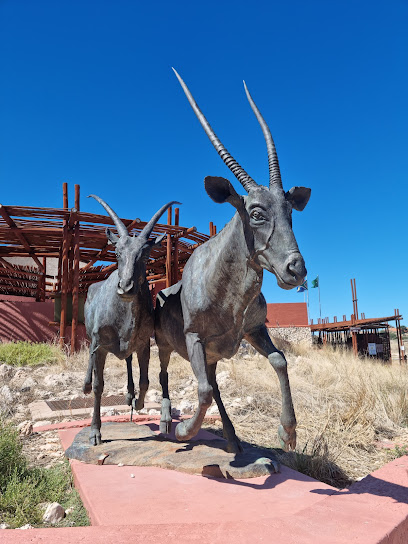
Kgalagadi lifestyle Lodge
Experience the magic of the Kalahari at Kgalagadi Lifestyle Lodge, your gateway to adventure and tranquility in the heart of nature.
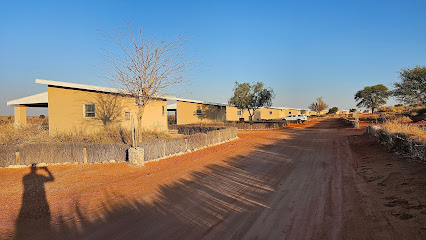
Nossob Rest Camp @ Kgalagadi Transfrontier Park
Experience the beauty of Kgalagadi Transfrontier Park at Nossob Rest Camp, a serene lodging destination surrounded by breathtaking wildlife.

Mata-Mata Rest Camp @ Kgalagadi Transfrontier Park
Discover the stunning landscapes and diverse wildlife of Kgalagadi Transfrontier Park at Mata-Mata Rest Camp, an unforgettable lodging experience in nature.

Kalahari Tented Camp
Discover the magic of the Kalahari Desert at Kalahari Tented Camp, where adventure meets tranquility in a stunning natural setting.

!Xaus Lodge
!Xaus Lodge: A unique retreat in Kgalagadi Transfrontier Park, offering stunning landscapes, rich wildlife, and an immersive desert experience.

Kgalagadi - Lodge - Guesthouse - Camp Site
Discover the charm of Kgalagadi Lodge, a perfect blend of comfort and adventure in the heart of the Kgalagadi Desert.
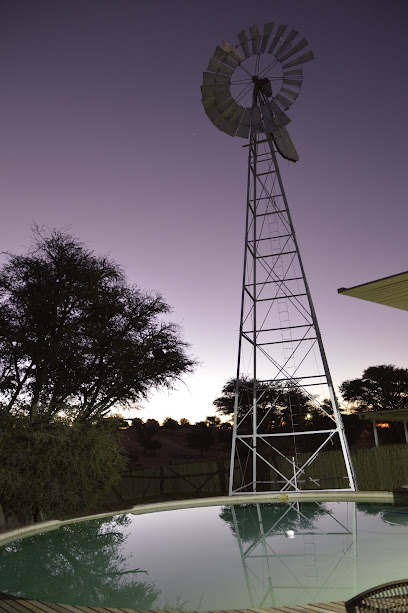
Urikaruus
Experience the untamed beauty of Kgalagadi at Urikaruus Campground, your gateway to diverse wildlife and stunning desert landscapes.
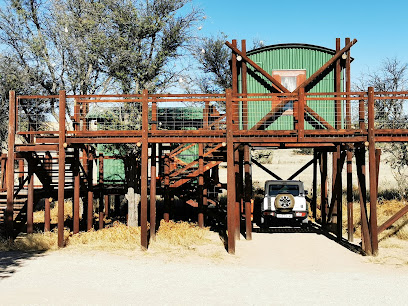
Gharagab Wilderness Camp
Discover the untouched wilderness of Kgalagadi at Gharagab Wilderness Camp, where adventure and tranquility meet in the heart of nature.
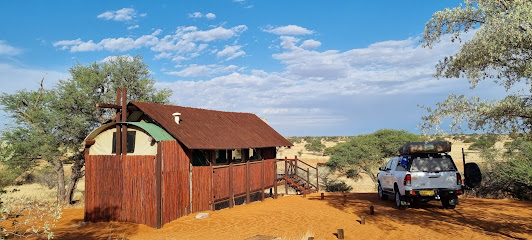
Kalahari Sands Safari Lodge
Discover Kalahari Sands Safari Lodge, where luxury meets the wild beauty of the Kgalagadi Desert for an unforgettable getaway.

Mabuasehube Game Reserve
Experience the breathtaking landscapes and abundant wildlife at Mabuasehube Game Reserve, a hidden gem in South Africa's natural wonders.
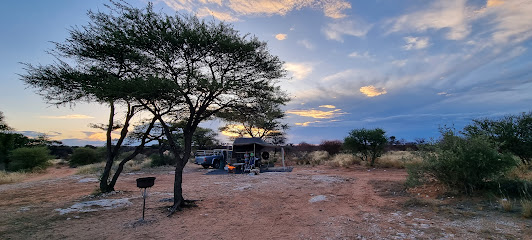
Kij Kij
Explore Kij Kij, a serene watering hole in South Africa, offering breathtaking views and unforgettable wildlife experiences for nature lovers.
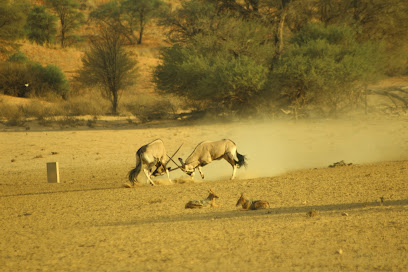
Unmissable attractions to see
Augrabies Falls National Park
Explore the breathtaking Augrabies Falls National Park, a natural wonder with stunning waterfalls, diverse wildlife, and thrilling outdoor adventures in South Africa.
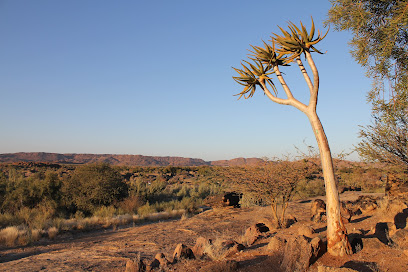
Sakkie se Arkie
Explore Sakkie se Arkie in Upington, a tranquil paradise for birdwatchers and nature lovers, offering stunning landscapes and vibrant wildlife.
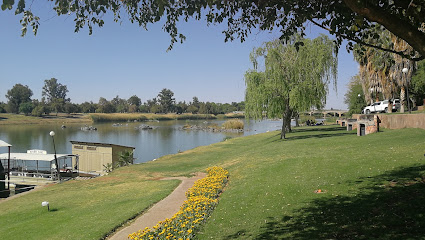
Twee Rivieren
Experience the breathtaking wilderness of Twee Rivieren, the gateway to Kgalagadi Transfrontier Park, where nature and adventure await.

Namaqua National Park
Explore the stunning wildflower displays and diverse wildlife of Namaqua National Park, a natural paradise in South Africa perfect for all nature lovers.
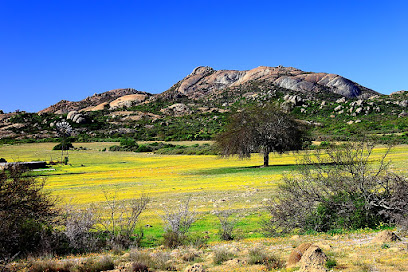
/Ai /Ais-Richtersveld Transfrontier Park
Discover the stunning landscapes and diverse wildlife of Ai-Ais Richtersveld Transfrontier Park, a unique national park at the South African-Namibian border.
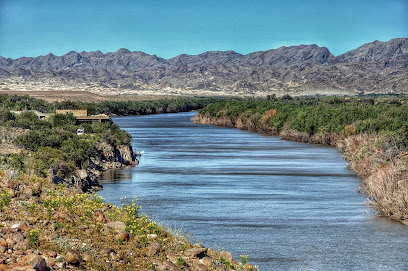
Nossob Rest Camp @ Kgalagadi Transfrontier Park
Experience the beauty of Kgalagadi Transfrontier Park at Nossob Rest Camp, where nature and wildlife await in the heart of the Kalahari Desert.

Makgadikgadi Pans National Park
Explore the breathtaking landscapes of Makgadikgadi Pans National Park, renowned for its unique salt pans and diverse wildlife encounters in Botswana.
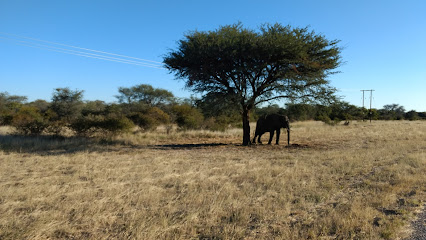
Central Kalahari Game Reserve
Discover the breathtaking landscapes and diverse wildlife of Central Kalahari Game Reserve, Botswana's untouched natural wonder.
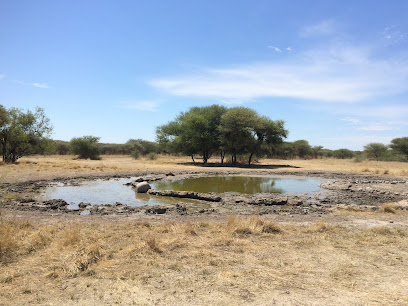
Kalahari Trails
Explore the breathtaking Kalahari Desert at Kalahari Trails, a nature lover's paradise filled with stunning landscapes and wildlife encounters.
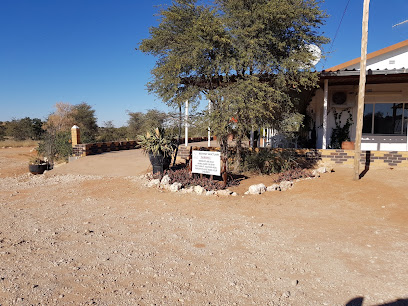
Auchterlonie Museum
Discover the rich history and cultural heritage of South Africa at the Auchterlonie Museum, a captivating tourist attraction for all ages.
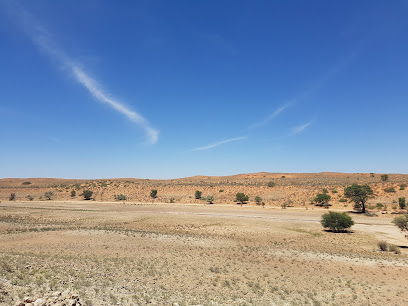
Khutse Game Reserve
Explore the wild and beautiful Khutse Game Reserve, where nature thrives and adventure awaits in Botswana's stunning landscapes.
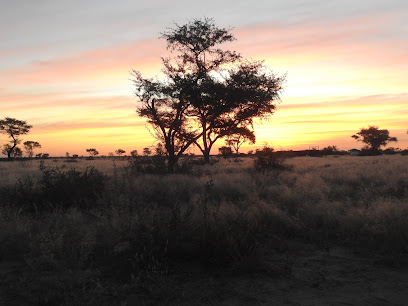
Tashebube, Rooiputs Lodge
Discover the beauty and tranquility of Tashebube at Rooiputs Lodge in Botswana, a perfect blend of adventure and relaxation in the heart of the Kalahari Desert.

Kieliekrankie Wilderness Camp (SANParks)
Experience the untamed beauty of the Kalahari at Kieliekrankie Wilderness Camp, a serene retreat in the Kgalagadi Transfrontier Park.
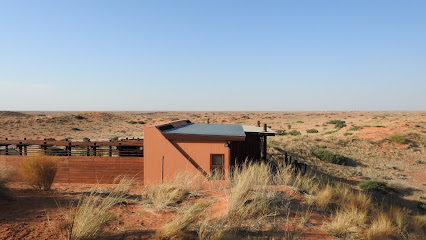
Bitterpan Wilderness Camp
Experience the wild allure of Bitterpan Wilderness Camp in Kgalagadi Transfrontier Park, a serene oasis for nature enthusiasts and adventure seekers alike.
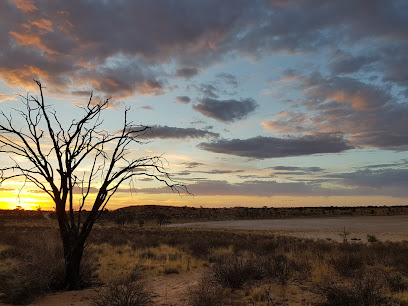
Urikaruus
Experience the tranquil beauty and wildlife of Urikaruus in Kgalagadi Transfrontier Park, a perfect blend of nature and adventure.
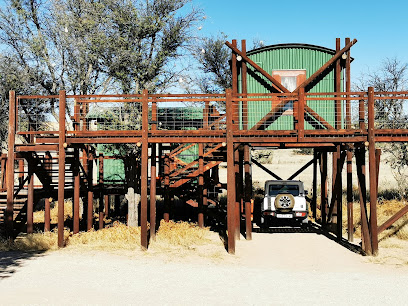
Essential places to dine
Kgalagadi lifestyle Lodge
Discover comfort and adventure at Kgalagadi Lifestyle Lodge near breathtaking wildlife and scenic landscapes.
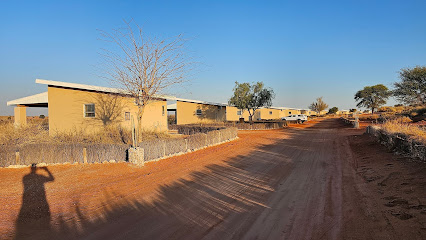
Nossob Rest Camp @ Kgalagadi Transfrontier Park
Discover the untamed beauty of Kgalagadi at Nossob Rest Camp - your perfect lodging amidst nature's wonders.

Kgalagadi Hotel
Discover unparalleled comfort at Kgalagadi Hotel – your gateway to adventure in Batlharo with cozy rooms and authentic dining experiences.
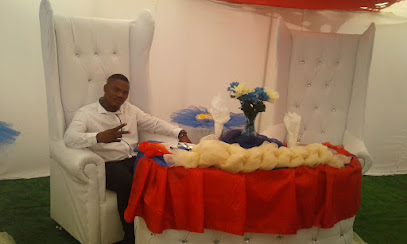
!Xaus Lodge
Discover the beauty of Kgalagadi Transfrontier Park at !Xaus Lodge - a luxurious escape into nature's wilderness.

Black Mane Butcher & Grill
Experience authentic South African cuisine at Black Mane Butcher & Grill in Askham – where every meal is a celebration of flavor.
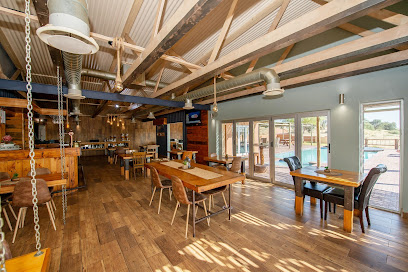
Kgalagadi Lion Den
Discover unique flavors at Kgalagadi Lion Den, the only restaurant in Kgalagadi Transfrontier Park offering an unforgettable dining experience surrounded by nature.
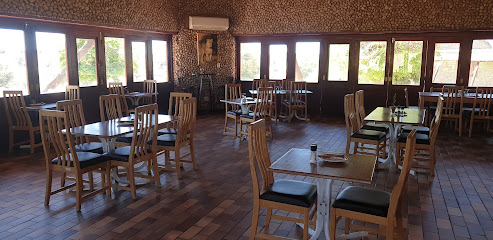
Markets, malls and hidden boutiques
Kalahari Mall
Discover Kalahari Mall in Upington, a vibrant shopping destination with diverse stores, delightful dining, and entertainment options for every visitor.
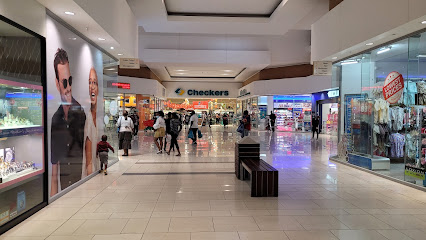
Kgalagadi Transfrontier Park
Discover the breathtaking landscapes and diverse wildlife of Kgalagadi Transfrontier Park, a true gem in the Kalahari Desert.
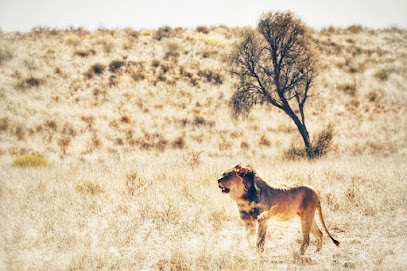
Twee Rivieren
Explore the breathtaking Kalahari Desert at Twee Rivieren, a premier campground in Kgalagadi Transfrontier Park, perfect for wildlife lovers and nature enthusiasts.

Kgalagadi lifestyle Lodge
Discover the magic of the Kalahari at Kgalagadi Lifestyle Lodge, where adventure meets comfort amidst breathtaking natural beauty.
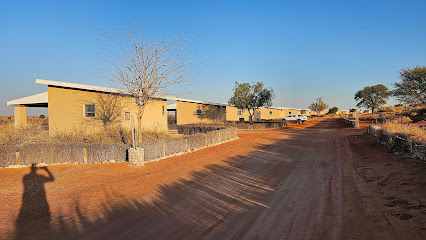
Nossob Rest Camp @ Kgalagadi Transfrontier Park
Experience the untamed beauty of Kgalagadi Transfrontier Park at Nossob Rest Camp, where wildlife and tranquility await.

Mata-Mata Rest Camp @ Kgalagadi Transfrontier Park
Experience the breathtaking beauty and wildlife of Kgalagadi Transfrontier Park at Mata-Mata Rest Camp, a perfect desert getaway for nature lovers.

Twee Rivieren Border Control (RSA)
Discover the gateway to Kgalagadi Transfrontier Park at Twee Rivieren Border Control, where adventure awaits amidst stunning Kalahari landscapes.
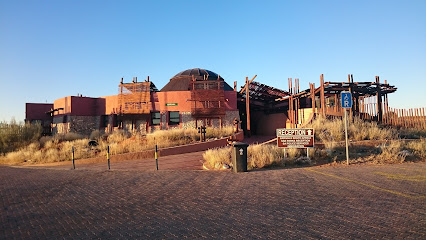
Diamond T Coffee Shop
Discover the cozy charm of Diamond T Coffee Shop in Askham, where delicious bites and refreshing drinks meet warm hospitality.
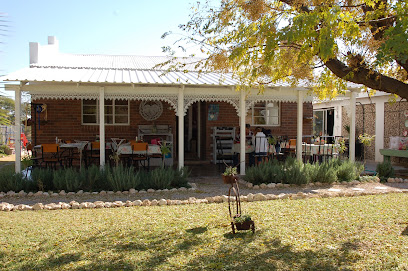
Kalahari Tented Camp
Experience the magic of the Kalahari Desert at Kalahari Tented Camp, a family-friendly children's camp offering adventure and comfort in a unique indoor setting.

Kgalagadi - Lodge - Guesthouse - Camp Site
Experience the serene beauty of Kgalagadi Lodge, an oasis in the desert offering a unique blend of comfort, adventure, and local wildlife encounters.
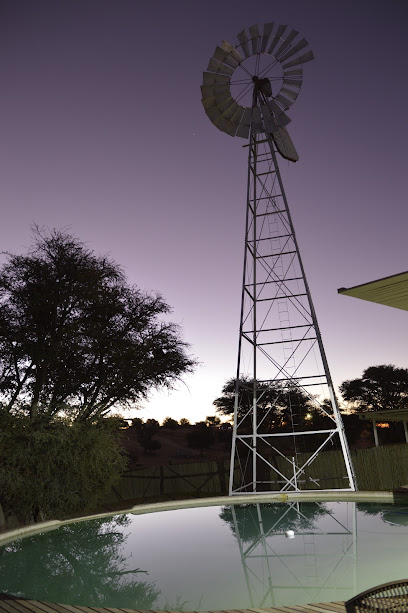
!Xaus Lodge
Discover the breathtaking landscapes and rich wildlife of Kgalagadi Transfrontier Park at !Xaus Lodge, your oasis of comfort in the Kalahari Desert.

Bitterpan Wilderness Camp
Experience the serene wilderness of Bitterpan Wilderness Camp, a hidden treasure in Kgalagadi Transfrontier Park, ideal for nature lovers and wildlife enthusiasts.
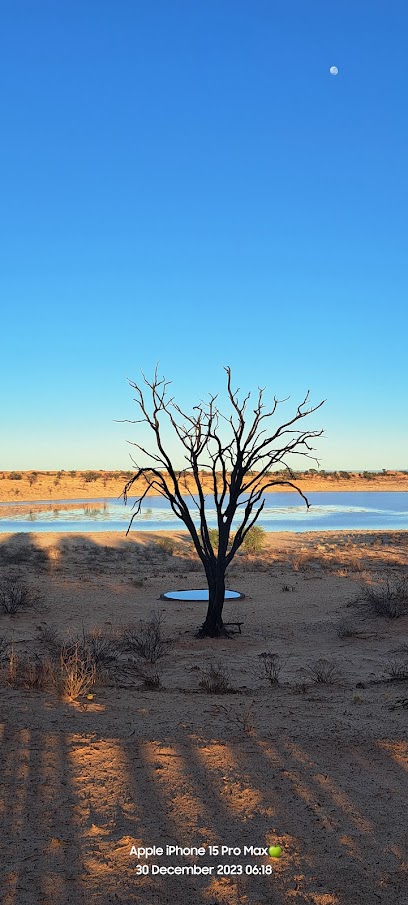
Urikaruus
Experience the breathtaking beauty and wildlife of Urikaruus in Kgalagadi Transfrontier Park, a true desert paradise for nature lovers.
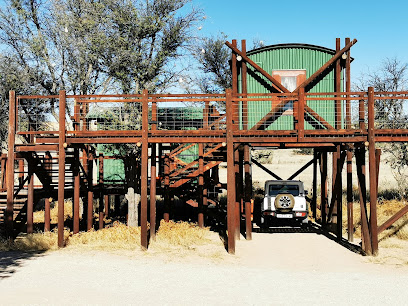
Grootkolk
Discover the tranquility of Grootkolk in Kgalagadi Transfrontier Park, where luxury meets the wild in a stunning African setting.

Gharagab Wilderness Camp
Immerse yourself in the breathtaking wilderness of Gharagab Wilderness Camp, where nature and adventure meet in South Africa's Kalahari Desert.

Essential bars & hidden hideouts
San Deck, Bar & Restaurant
Discover the vibrant flavors and stunning views at San Deck, Bar & Restaurant in Sandton - a must-visit culinary destination.
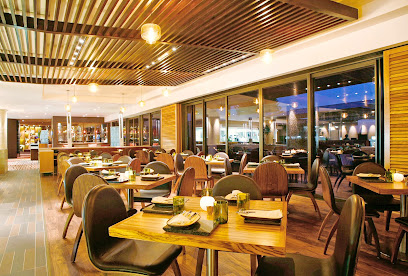
Cause Effect Cocktail Kitchen
Discover innovative cocktails and vibrant culinary experiences at Cause Effect Cocktail Kitchen in Cape Town's iconic V&A Waterfront.
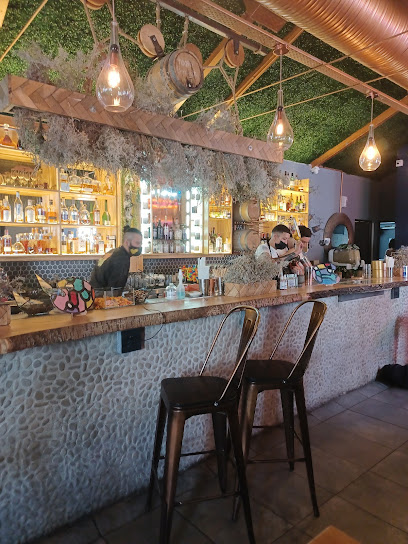
Augrabies Falls Lodge & Camp
Discover the breathtaking beauty of Augrabies Falls Lodge & Camp, where nature meets comfort in the heart of South Africa's wilderness.
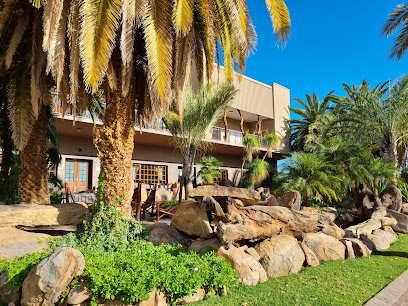
Chicken Licken Roodepoort
Experience the irresistible taste of Chicken Licken Roodepoort, where spicy fried chicken and a joyful dining atmosphere await you.
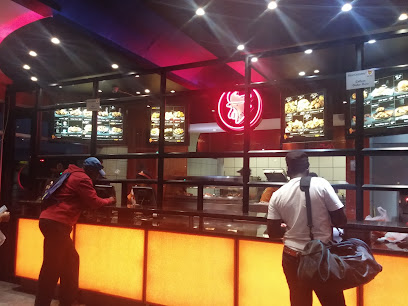
Kgalagadi lifestyle Lodge
Experience the beauty of the Kalahari Desert at Kgalagadi Lifestyle Lodge, a perfect blend of adventure and comfort for every traveler.
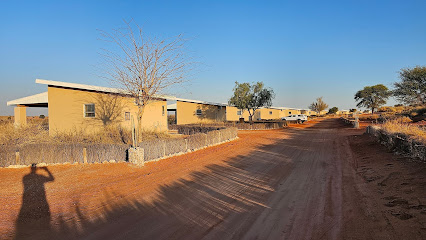
Kakamas Hotel by Country Hotels
Discover comfort and local charm at Kakamas Hotel, your ideal retreat in Northern Cape, South Africa.
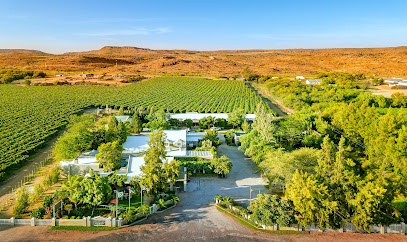
Ikaia River Lodge
Experience the serene beauty of Ikaia River Lodge, a perfect retreat for nature enthusiasts and adventure seekers in South Africa.
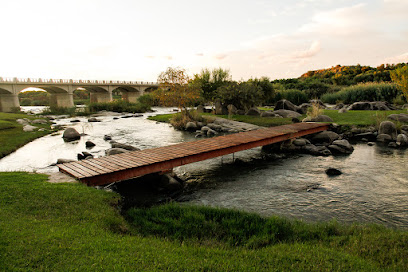
De Werf Lodge
Explore De Werf Lodge in Keimoes for a unique blend of dining, accommodation, and event services nestled in the heart of South Africa.
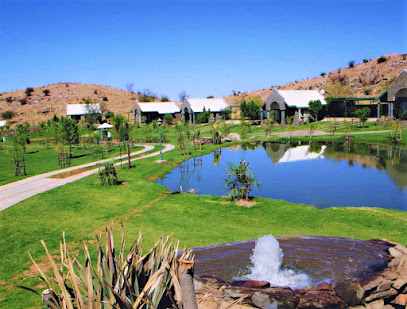
Nossob Rest Camp @ Kgalagadi Transfrontier Park
Discover the natural beauty and wildlife of Kgalagadi Transfrontier Park at Nossob Rest Camp, an oasis in the Kalahari Desert.

Alto234
Experience the vibrant nightlife at Alto234, a rooftop bar in Sandton offering stunning views, creative cocktails, and a lively atmosphere.
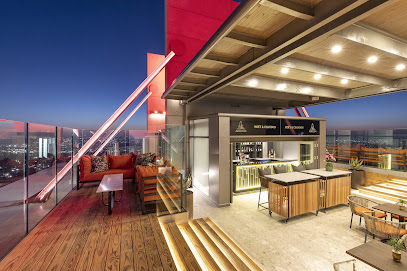
Khamkirri
Discover the ultimate blend of adventure and relaxation at Khamkirri, a scenic venue offering fishing, rafting, and exceptional dining experiences in Kakamas.
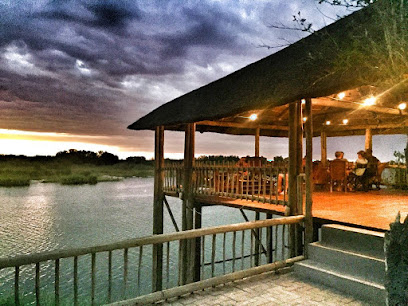
Admiral's Bar
Admiral's Bar in Velddrif offers a lively atmosphere with a diverse drink selection, perfect for unwinding after a day of exploration.
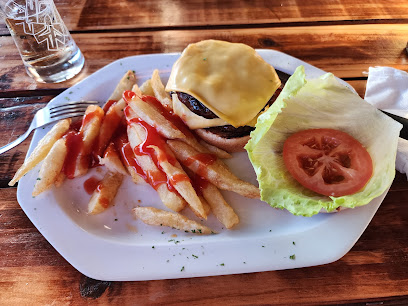
Kalahari Tented Camp
Experience the magic of the Kalahari Desert at the Kalahari Tented Camp, where adventure and family bonding meet in nature's embrace.

Kgalagadi Hotel
Discover the charm of Kgalagadi Hotel in Batlharo, where comfort meets local culture in a vibrant setting.
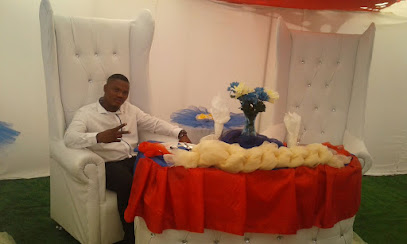
!Xaus Lodge
Discover the tranquility and adventure of !Xaus Lodge, a luxurious retreat in Kgalagadi Transfrontier Park, where nature and culture meet.

Local Phrases about Kgalagadi Transfrontier Park
-
- HelloDumela
[doo-MEH-lah] - GoodbyeSala sentle
[SAH-lah sehn-TLEH] - YesEe
[EE] - NoNnyaa
[NYAH] - Please/You're welcomeLe kamoso
[leh kah-MOH-soh] - Thank youKe a leboga
[keh ah leh-BOH-gah] - Excuse me/SorryRobala sentle
[roh-BAH-lah sehn-TLEH] - How are you?Le kae?
[leh kah-eh?] - Fine. And you?Ke teng. O kae?
[keh tehn. oh kah-eh?] - Do you speak English?O bua sekgowa?
[oh boo-ah seh-KOH-wah?] - I don't understandGa ke itse
[gah keh EE-tseh]
- HelloDumela
-
- I'd like to see the menu, pleaseKe kopa go bona menye
[keh KOH-pah goh BOH-nah MEHN-yeh] - I don't eat meatGa ke itse nyama
[gah keh EE-tseh nyah-mah] - Cheers!Nkelekela!
[nkeh-leh-keh-lah] - I would like to pay, pleaseKe kopa go dira sebileng
[keh KOH-pah goh DEE-rah seh-bee-lehng]
- I'd like to see the menu, pleaseKe kopa go bona menye
-
- Help!Boitumelo!
[BOY-too-MEH-loh] - Go away!Tswa daar!
[tswah DAHR] - Call the Police!Bula bolisi!
[BOO-lah boh-LEE-see] - Call a doctor!Bula ngaka!
[BOO-lah ngah-KAH] - I'm lostKe ile kwa morwamo
[keh EE-leh kwah mohr-WAH-moh] - I'm illKe tlameile
[keh tlah-MEH-ee-leh]
- Help!Boitumelo!
-
- I'd like to buy...Ke kopa go rekela...
[keh KOH-pah goh reh-keh-lah] - I'm just lookingKe batla go bona fela
[keh baht-lah goh BOH-nah FEH-lah] - How much is it?Ke bokae?
[keh boh-kah-eh?] - That's too expensiveEna e tsamaya kudu
[eh-nah eh tsah-MAH-yah koo-doo] - Can you lower the price?O ka nna o dira sebete?
[oh kah nah oh DEE-rah seh-BEH-teh?]
- I'd like to buy...Ke kopa go rekela...
-
- What time is it?Ke kae kantle?
[keh kah-eh kahn-TLEH?] - It's one o'clockKe leka ya boraro
[keh LEH-kah yah boh-RAH-roh] - Half past (10)Molaetsa (10)
[moh-LAH-eh-tsah (10)] - MorningBoemo
[BOH-eh-moh] - AfternoonNtwa
[ntwah] - EveningLefatshe la bohwa
[LEH-faht-sheh lah boh-WAH] - YesterdayNgoanathata
[ngoh-ah-nah-THAH-tah] - TodayNtate
[ntah-teh] - TomorrowNgwaga
[ngwah-gah] - 1Moja
[MOH-yah] - 2Pedi
[PEH-dee] - 3Tharo
[tah-ROH] - 4Nne
[nnay] - 5Tlhano
[tlah-NOH] - 6Tlhano tse pedi
[tlah-NOH tseh PEH-dee] - 7Tlhano tse tharo
[tlah-NOH tseh tah-ROH] - 8Tlhano tse nne
[tlah-NOH tseh nnay] - 9Tlhano tse tshupa
[tlah-NOH tseh tshoo-pah] - 10Lesome
[leh-SOH-meh]
- What time is it?Ke kae kantle?
-
- Where's a/the...?Kae...?
[kah-eh?] - What's the address?Le reng tafoleng?
[leh rehng tah-FOH-lehng?] - Can you show me (on the map)?O ka nna o ntse o bona (ka leeto)?
[oh kah nah oh ntsheh oh BOH-nah (kah LEH-toh)?] - When's the next (bus)?Ke kae (bhasa) e nnyane?
[keh kah-eh (bah-sah) eh nyah-neh?] - A ticket (to ....)Lebitso (go ....)
[leh-BEET-soh (goh ....)]
- Where's a/the...?Kae...?
History of Kgalagadi Transfrontier Park
-
Long before the establishment of the Kgalagadi Transfrontier Park, the region was home to the San people, also known as the Bushmen. These indigenous hunter-gatherers have lived in the Kalahari Desert for thousands of years, adapting to its harsh environment. Their rock art and ancient tools have been discovered throughout the park, offering a glimpse into their rich cultural heritage and deep connection with the land.
-
In the 19th century, European explorers and traders began to traverse the Kalahari Desert. Figures such as David Livingstone and William Cotton Oswell documented their journeys, bringing global attention to the region. The interactions between these explorers and the indigenous populations were often complex, leading to both cultural exchanges and conflicts.
-
In 1931, the South African government established the Gemsbok National Park to protect the unique wildlife and fragile ecosystem of the Kalahari Desert. This marked the beginning of formal conservation efforts in the area. The park was named after the gemsbok, a large antelope species indigenous to the region, symbolizing the area's rich biodiversity.
-
In May 2000, the Kgalagadi Transfrontier Park was officially inaugurated, merging South Africa's Gemsbok National Park with Botswana's Mabuasehube-Gemsbok National Park. This historic agreement not only facilitated cross-border wildlife conservation but also promoted eco-tourism and fostered international cooperation. The park became one of the first transfrontier conservation areas in Africa, setting a precedent for future initiatives.
-
The Kgalagadi Transfrontier Park is not just a sanctuary for wildlife but also a living cultural landscape. The Khomani San and Mier communities, who have historical ties to the land, were officially recognized in the park's management plans. These communities play a vital role in preserving their traditional knowledge and practices, ensuring that their heritage continues to thrive alongside modern conservation efforts.
-
Today, the Kgalagadi Transfrontier Park faces numerous challenges, including climate change, poaching, and human-wildlife conflict. Conservationists and park authorities are continually working to address these issues through sustainable practices and community involvement. Research and monitoring programs are essential in adapting to the changing environment and ensuring the long-term survival of the park's diverse species.
Kgalagadi Transfrontier Park Essentials
-
Kgalagadi Transfrontier Park is located in the Kalahari Desert, straddling the border between South Africa and Botswana. The nearest major airport is Upington Airport (UTN) in South Africa, which is approximately 250 kilometers from the park. From Upington, you can rent a car and drive to the park, which takes about 3 hours. Alternatively, charter flights are available directly to the park's airstrips. If traveling from Botswana, you can enter through the Two Rivers Gate, which is accessible from the town of Ghanzi.
-
Within Kgalagadi Transfrontier Park, the most practical way to get around is by renting a 4x4 vehicle, as many roads are unpaved and require a high-clearance vehicle. Guided tours and safaris are available for those who prefer not to drive. It's important to have a reliable GPS or map, as cell service can be unreliable in remote areas. Be sure to carry extra fuel, water, and supplies, as facilities within the park are limited.
-
The official currency in South Africa is the South African Rand (ZAR). In Botswana, the currency is the Botswana Pula (BWP). Credit cards are accepted at most lodges and camps within the park, but it's advisable to carry some cash for smaller transactions or in case of connectivity issues. ATMs are available in larger towns like Upington, but not within the park itself.
-
Kgalagadi Transfrontier Park is generally a safe destination for tourists, but it's important to take standard precautions. Always lock your vehicle and secure your belongings. Be aware of wildlife and never approach or feed animals. Stick to designated roads and trails. There are no high-crime areas targeting tourists within the park, but exercise caution in any remote area.
-
In case of an emergency, contact park authorities via the nearest camp or ranger station. Emergency numbers are usually posted at campsites and lodges. Medical facilities are limited within the park, so it's advisable to have comprehensive travel insurance that covers medical emergencies. For minor health issues, basic first aid supplies can be found at larger camps.
-
Fashion: Do wear lightweight, breathable clothing and sturdy shoes suitable for hiking. Avoid bright colors that may disturb wildlife. Religion: Do respect local customs and traditions. If visiting nearby communities, ask for permission before photographing people. Public Transport: Public transport within the park is non-existent; self-drive or guided tours are the main options. Greetings: Do greet people with a friendly wave or nod. Eating & Drinking: Do carry sufficient water and snacks, as facilities are limited. Don't litter; always dispose of waste properly.
-
For an authentic experience, visit the park during the early morning or late afternoon when wildlife is most active. Stay at one of the wilderness camps for a more secluded experience. Engage with park rangers and guides, who can offer invaluable insights into the region's ecology and history. Don't miss the chance to stargaze; the park's remote location offers some of the clearest skies for astronomy enthusiasts.
Trending Landmarks in Kgalagadi Transfrontier Park
-
Kalahari Desert
-
Twee Rivieren
-
Kgalagadi lifestyle Lodge
-
Nossob Rest Camp @ Kgalagadi Transfrontier Park
-
Mata-Mata Rest Camp @ Kgalagadi Transfrontier Park
-
Kalahari Tented Camp
-
!Xaus Lodge
-
Kgalagadi - Lodge - Guesthouse - Camp Site
-
Urikaruus
-
Gharagab Wilderness Camp
-
Kalahari Sands Safari Lodge
-
Mabuasehube Game Reserve
-
Kij Kij
Nearby Cities to Kgalagadi Transfrontier Park
-
Things To Do in Keetmanshoop
-
Things To Do in Molepolole
-
Things To Do in Lobatse
-
Things To Do in Windhoek
-
Things To Do in Gaborone
-
Things To Do in Kimberley
-
Things To Do in Okahandja
-
Things To Do in Lüderitz
-
Things To Do in Maun
-
Things To Do in Karibib
-
Things To Do in Mahalapye
-
Things To Do in Usakos
-
Things To Do in Serowe
-
Things To Do in Omaruru
-
Things To Do in Bloemfontein









